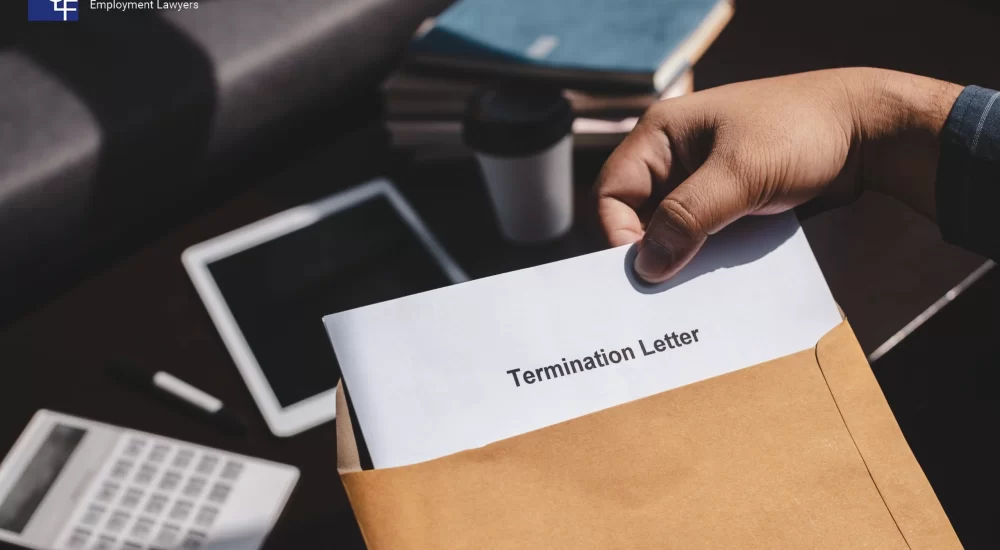How Long Do You Have to Sue for Wrongful Termination in California?

Following an unlawful termination, you may wonder, “How long do you have to sue for wrongful termination in California?” State courts set strict deadlines for when a claim can be filed. A wrongful termination claim requires timely filings by an employment attorney to make sure that their clients can use the court system to receive compensation. In California, the process often requires filing a complaint with a government agency and then pursuing civil action against your former employer.
Filing Deadlines for Wrongful Termination
Before you can file a claim against your former employer, you may be required to obtain a right-to-sue letter from a government agency. This must usually be filed within 3 years for discrimination and harassment claims. Your employment law attorney can file the necessary paperwork to receive this letter. From the day that you receive your right-to-sue letter, you have one year to file a civil claim with the help of your lawyer.
What Qualifies for a Wrongful Termination Claim in California?
A wrongful termination attorney can review the facts of your case to determine whether your termination violated state or federal laws. Even when the main source of evidence for your case is your word versus theirs, you may still have enough evidence to merit taking legal action.
For example, your boss may have a history of discriminating against certain groups or giving preferential treatment to certain people. A former colleague who experienced similar discrimination to what you experienced could provide a statement or testimony that shows a pattern of behavior.
There are three main categories where someone could claim wrongful termination. One involves a breach of contract. If your employment contract states that you can only be terminated for cause, meaning serious misconduct, and you are terminated for no given reason, your former employer may be in breach of contract, and you may have grounds to sue.
If you are discharged due to your protected characteristic, meaning due to discrimination, you can take legal action against your former employer. Discrimination in the workplace is unlawful in California.
Workers cannot be fired for protected actions. These include:
- Reporting unsafe work conditions
- Filing protected complaints
- Requesting reasonable accommodations for disabilities
- Taking a lawful leave of absence, like family, pregnancy, or medical leave
What Forms of Compensation Can I Receive for Wrongful Termination?
By filing a complaint or claim, you may be able to receive monetary compensation. Although money cannot undo the emotional harm caused by an unlawful termination, it can alleviate the financial harm that was done.
Monetary compensation can also account for the emotional harm you endured and any other costs that you incurred as a result of your wrongful termination. In cases where there was grave misconduct, you may be entitled to punitive damages. A win in court could mean that you are reinstated at your former job if you want to return.
FAQs
Q: What Qualifies as Wrongful Termination in California?
A: Any termination of an employee that violates a state or federal law qualifies as a wrongful termination. Breach of contract can also lead to a wrongful termination claim. Discriminatory terminations are also considered wrongful in California. To hold the at-fault employer accountable, employees will need to file a complaint with the appropriate government agency.
Q: What Is the Average Settlement for Wrongful Termination in California?
A: The average settlement from a wrongful termination complaint or claim depends on hundreds of factors including the financial and emotional harm that was caused by the wrongful termination. In strong evidence cases that resulted in serious harm and emotional distress for the employee, the settlement could be substantial. Every case is unique.
Q: What Happens If I Miss a Filing Deadline?
A: Missing a deadline for filing a complaint with a state or federal agency means that you lose the right to file the complaint. Missing the statute of limitations deadline for filing a claim means that you will no longer be able to file a civil claim. Government deadlines are strictly enforced. One way you can keep from missing an important deadline is by hiring an attorney soon after you are wrongfully terminated.
Q: What Are Some Examples of Wrongful Termination?
A: Employers can terminate a worker at any time for any lawful reason. Workers cannot be fired for performing protected acts, like reporting dangerous work conditions. Employees also cannot be discharged because of protected characteristics like medical condition, race, age, and gender. Another example of a wrongful termination would be a termination that violates the terms of an employment contract.
Schedule Your Wrongful Termination Claim Today
With an experienced attorney by your side, you do not have to worry about missing important filing deadlines. California’s employment laws are complicated. Some cases require filing complaints with a federal agency, while others are handled at the state level. There are often multiple steps that must be completed before you can sue someone for wrongful termination.
You can simplify the process by working with an experienced employment law attorney who has handled similar cases before, resulting in fair settlement offers for their clients. The attorneys at Shirazi Law Firm, PC, can help you receive fair compensation if you were unlawfully terminated from your job. To start the process, contact our office today.




